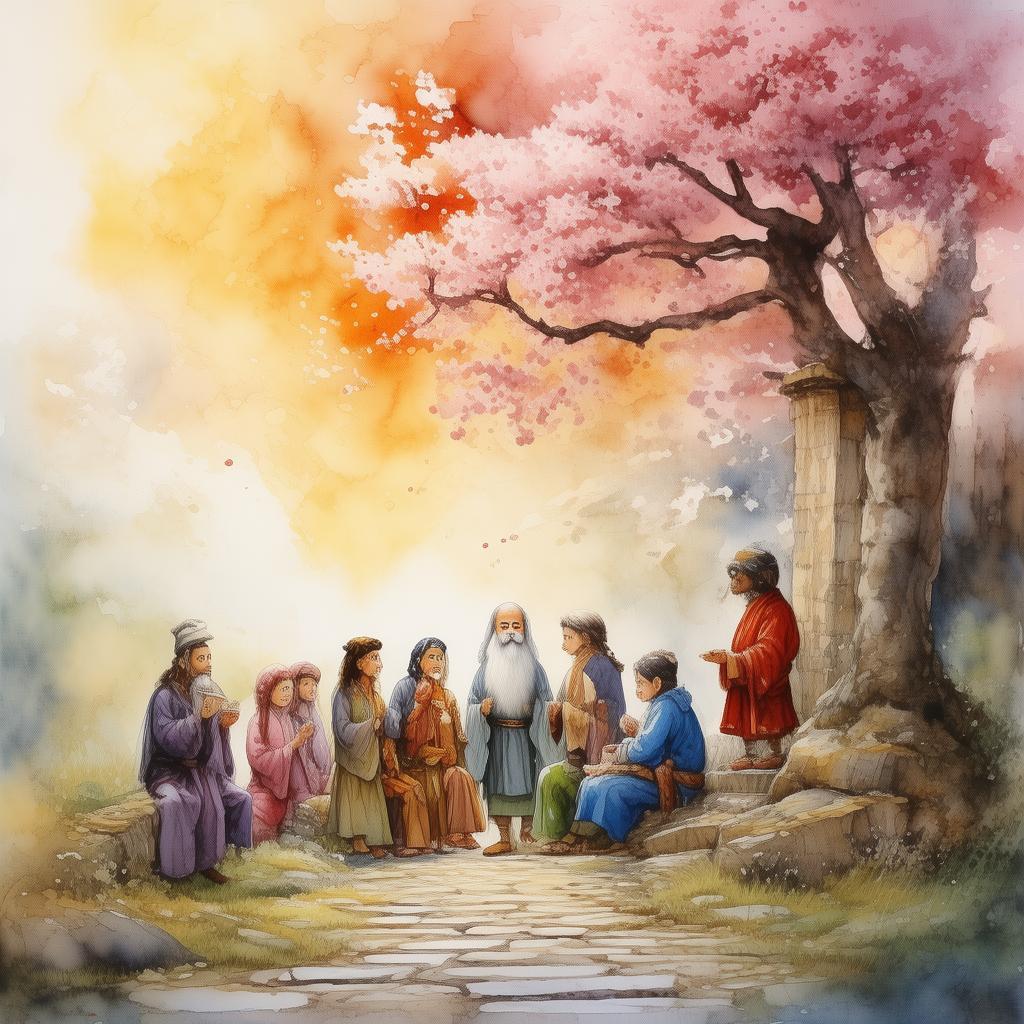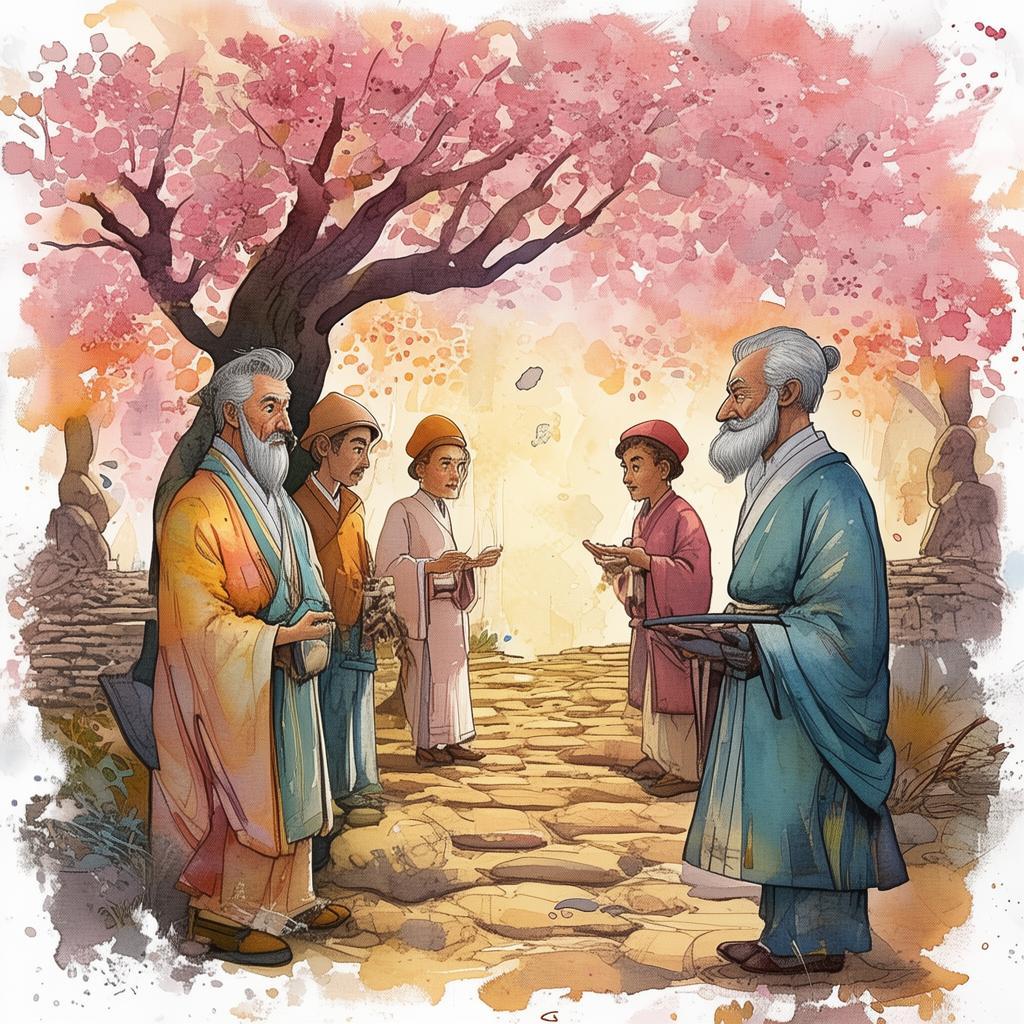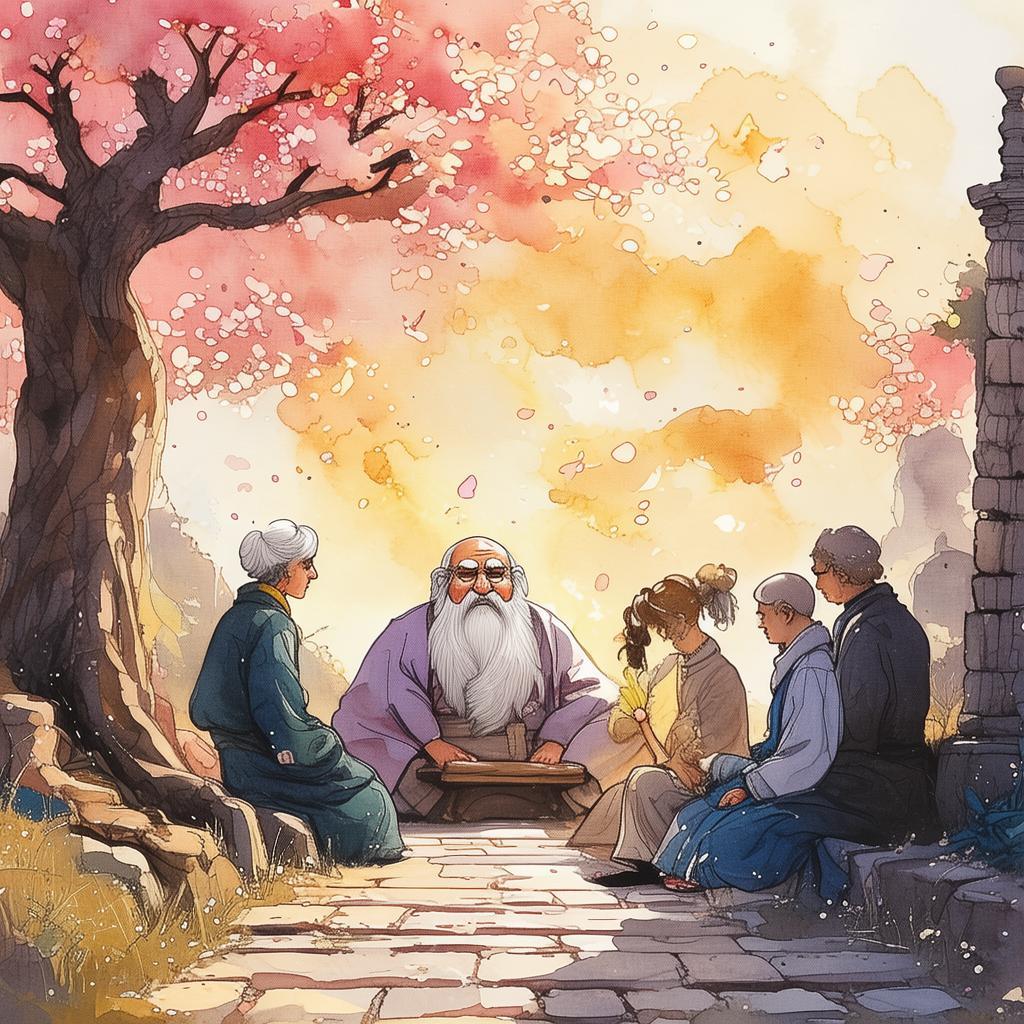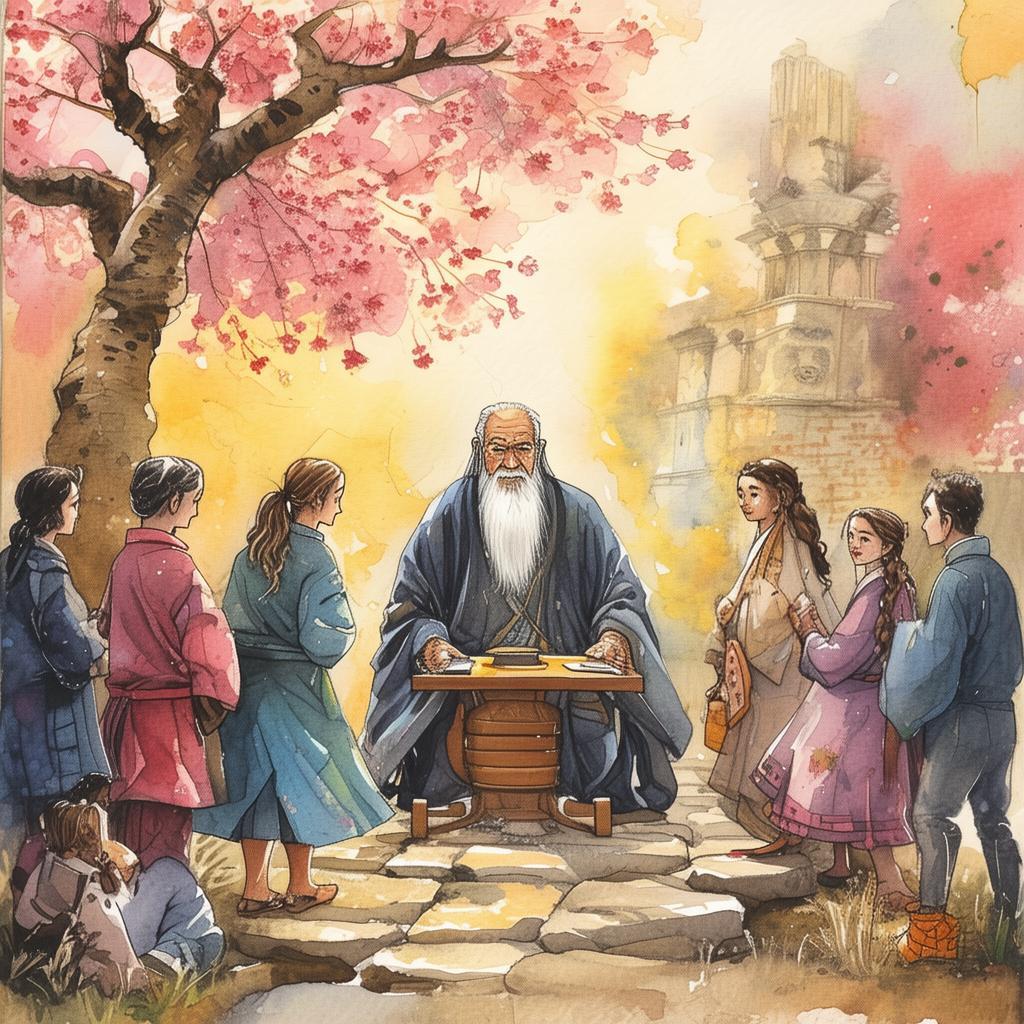The Braggart's Boon and the Bad Luck Bane
In the bustling capital of ancient China, there was a general known for his pride and boasting. His name was General Yang, a man whose ego often overshadowed his military prowess. One day, the emperor held a grand celebration to honor the bravery of his troops. Amidst the festivities, the emperor, intrigued by General Yang's braggart nature, decided to bestow upon him a unique boon.
The boon was a small, intricately carved bane, said to bring good fortune to its bearer. The emperor whispered, "General Yang, this bane will bring you luck. Wear it with pride and it will be your shield against all adversity."
General Yang, flushed with pride, immediately affixed the bane to his chest. The crowd cheered, and he basked in the glory. However, he couldn't help but boast about his newfound luck to anyone who would listen.
As days turned into weeks, General Yang's luck seemed to improve. His troops won battles without a single setback, and he was promoted to an even higher rank. His pride swelled, and he began to believe that the bane was truly magical.
One evening, as General Yang lounged in his tent, he received an urgent message. The enemy had launched a surprise attack, and the army was in disarray. The news sent a chill down his spine, but he was confident that his bane would protect him.
He led his troops into battle, only to find that the enemy was stronger and more cunning than ever before. In the heat of the fight, General Yang's confidence waned. He realized that the bane had not shielded him from the battle's horrors.
One of his closest advisors, a wise old man named Wang, approached General Yang as they retreated. "General, the bane may not be as magical as you believe," Wang said softly. "It may have brought you good fortune, but it also attracted the bad luck of others."

General Yang, feeling the weight of his pride, decided to listen to Wang. He asked, "What should I do, Wang?"
Wang replied, "You must humble yourself and face the consequences of your boasting. Only by doing so can you break the curse of the bane."
General Yang, though reluctant, agreed. He returned to the capital and confessed his pride and boasting to the emperor. The emperor, impressed by General Yang's humility, removed the bane from his chest and returned it to Wang.
Wang then revealed the true nature of the bane. It was a powerful talisman that would amplify the bearer's luck, but only for a time. When the luck was spent, the bearer would be burdened with the bad luck of others.
With the bane gone, General Yang's luck seemed to vanish as quickly as it had appeared. He was defeated in battle, and his reputation as a braggart was firmly established. However, he found solace in his humility.
As the years passed, General Yang learned to value his service to the empire over his ego. He became a wise and respected leader, known for his bravery and humility. His story became a cautionary tale, a reminder to all that pride comes before a fall, and humility is the true measure of a man.
In the end, General Yang's journey from braggart to humble leader served as a testament to the power of self-reflection and the enduring truth that one's worth is not measured by the fortune they attract but by the character they embody.
✨ Original Statement ✨
All articles published on this website (including but not limited to text, images, videos, and other content) are original or authorized for reposting and are protected by relevant laws. Without the explicit written permission of this website, no individual or organization may copy, modify, repost, or use the content for commercial purposes.
If you need to quote or cooperate, please contact this site for authorization. We reserve the right to pursue legal responsibility for any unauthorized use.
Hereby declared.








